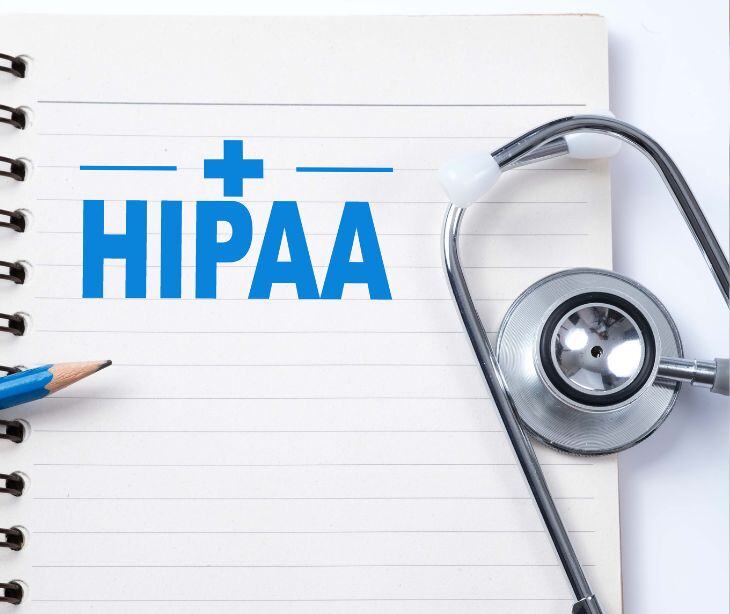
A HIPAA audit is a review process conducted by the Office for Civil Rights (OCR) to ensure that an organization complies with the Health Insurance Portability and Accountability Act (HIPAA).
Understanding HIPAA audits
A HIPAA audit is a formal review conducted to assess an organization's compliance with HIPAA regulations. These audits are primarily carried out by the Department of Health and Human Services (HHS) Office for Civil Rights (OCR). The purpose of the audit is to ensure that covered entities (such as healthcare providers, health plans, and healthcare clearinghouses) and their business associates (third-party vendors handling protected health information) adhere to the standards set forth by HIPAA.
Scope of the audit
Here’s a breakdown of what a HIPAA audit typically involves:
- Privacy Rule compliance: Ensures that patient information is protected and that patients' rights to their health information are upheld.
- Security Rule compliance: Reviews the administrative, physical, and technical safeguards in place to protect electronic protected health information (ePHI).
- Breach Notification Rule compliance: Ensures that the organization has procedures in place to notify affected individuals, the Department of Health and Human Services (HHS), and sometimes the media in the event of a breach.
The HIPAA audit process
Understanding the HIPAA audit process allows organizations to effectively prepare and respond to the audit. The audit typically involves the following steps:
Audit notification
Your organization will receive an audit notification from the OCR, detailing the scope of the audit and the documentation required. Organizations must respond promptly and accurately to this request.
Pre-audit preparation
Before the audit begins, your organization should conduct a thorough internal review of your HIPAA compliance program. This includes assessing your policies and procedures, employee training records, and risk management practices. Ensuring that all documentation is up-to-date and easily accessible is critical at this stage.
On-site audit
According to OCR’s procedures for its audit pilot program, every audit includes a site visit wherein “auditors will interview key personnel and observe processes and operations to help determine compliance. During this visit, auditors will assess your compliance with HIPAA's Privacy, Security, and Breach Notification Rules. Key personnel must be available to provide information and answer questions.
Audit findings
Following the audit, the OCR will issue a report outlining its findings. This report will highlight any areas of non-compliance and provide recommendations for corrective action. The severity of the findings will determine the necessary next steps.
Corrective action
If the audit identifies areas of non-compliance, your organization must take immediate corrective action. This may involve revising policies and procedures, enhancing security measures, or providing additional employee training. Documenting all corrective actions taken to demonstrate your commitment to compliance is important.
See also: What is a HIPAA corrective action plan?
The importance of HIPAA audits
For senior executives, understanding the importance of HIPAA audits is crucial for several reasons:
- Regulatory compliance: Non-compliance with HIPAA can result in significant fines and penalties, which can range from $127 to $68,928 per violation, depending on the severity of the infraction. Ensuring compliance through regular audits helps mitigate the risk of financial and reputational damage.
- Patient trust: In an era where data breaches are increasingly common, maintaining patient trust is paramount. A successful HIPAA audit demonstrates your commitment to protecting patient information, which can enhance your organization's reputation and foster stronger relationships with patients.
- Operational efficiency: HIPAA audits encourage the implementation of robust data protection practices, leading to improved operational efficiency. By identifying and addressing vulnerabilities, your organization can reduce the risk of data breaches and enhance overall security.
See also: HIPAA Compliant Email: The Definitive Guide
Best Practices for HIPAA audit preparation
When preparing for a HIPAA audit, implementing best practices can ensure compliance and avoid potential penalties. This section will outline key strategies that can help your organization be audit-ready and maintain the highest standards of patient data protection:
- Establish a HIPAA compliance team: Designate a team responsible for overseeing HIPAA compliance, including representatives from legal, IT, human resources, and clinical departments.
- Conduct regular risk assessments: Regular risk assessments are a cornerstone of HIPAA compliance. These assessments help identify potential vulnerabilities in your organization's handling of PHI and provide a basis for implementing appropriate safeguards.
- Document policies and procedures: Ensure that your organization has well-documented policies and procedures covering all aspects of HIPAA compliance. These should be regularly reviewed and updated to reflect changes in regulations, technology, and industry best practices.
- Provide ongoing employee training: Ensure that all staff members receive regular training on HIPAA requirements and the importance of protecting patient information.
- Maintain detailed documentation: Proper documentation demonstrates compliance during a HIPAA audit. Ensure that all HIPAA-related activities, including risk assessments, employee training, and policy updates are thoroughly documented and easily accessible.
Go deeper: How to prepare for a HIPAA audit
FAQs
What happens if non-compliance is found during a HIPAA audit?
If non-compliance is identified, the OCR will issue a report with findings and recommendations. Your organization will need to take corrective action, which may include policy updates, additional training, or enhanced security measures, to address the identified issues.
How far back do HIPAA auditors typically review during an audit?
Auditors may review records and documentation from the past six years, as HIPAA requires that covered entities maintain certain records for this duration.
Can a third-party vendor be audited for HIPAA compliance?
Yes, business associates who handle PHI on behalf of covered entities can also be subject to HIPAA audits.
Subscribe to Paubox Weekly
Every Friday we'll bring you the most important news from Paubox. Our aim is to make you smarter, faster.



